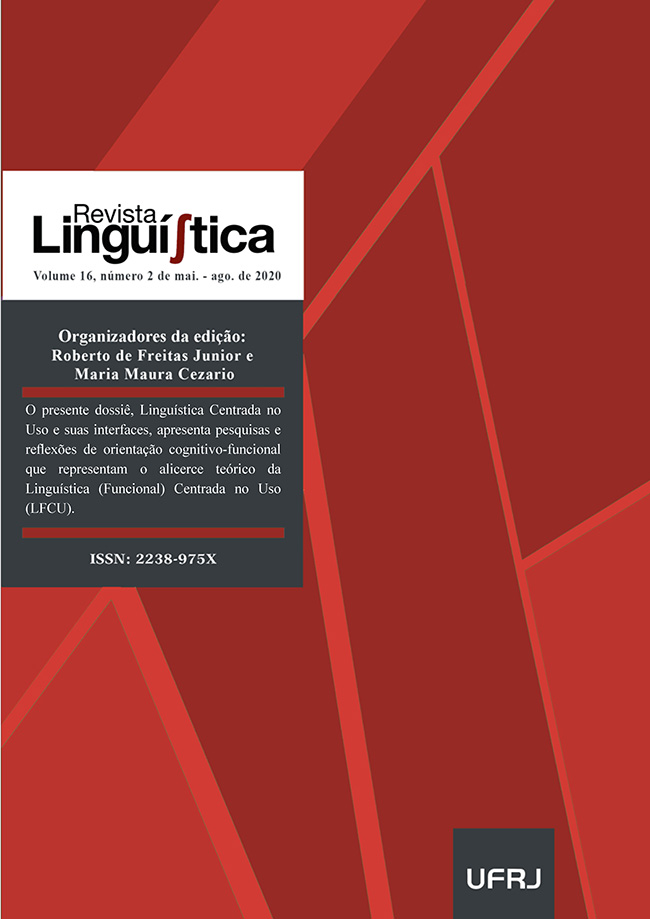Evidence on the cognitive representation of PB functional constructions in children and deaf adults
DOI:
https://doi.org/10.31513/linguistica.2020.v16n2a33881Keywords:
Functional constructions. Deaf learners. Brazilian Portuguese. Second language.Abstract
In this article, from an investigation centered on use, we analyze the cognitive representation of nominal predication constructions of Brazilian Portuguese (BP) instantiated by the basic pattern [(S) V(functional) X], in which the verbs SER, ESTAR and FICAR are the protagonists in attributive, equitable and presentational schemes. Therefore, instances of these pattern are contemplated quantitatively and qualitatively in 58 productions written in PBL2 of 18 deaf students from higher education and 4 deaf children from elementary school, collected from Corpus NEIS-UFRJ. We start from the theoretical assumptions of the Use-Based Construction Grammar (GOLDBERG, 2006; BYBEE, 2016; PEREK, 2015), in order to support the hypothesis that the schemes analyzed in the texts are mentally less salient to the participants due to little teaching contexts centered on the promotion of rich and significant use experiences capable of driving the efficient activation of general domain cognitive processes for the storage of L2 constructions in the learner's memory. The results demonstrate that the representational instability in both groups of learners is an indication of the pressing need for dialogues between the theoretical constructional contribution and teaching methodologies of L2.
Downloads
Published
Issue
Section
License
Authors who publish in the Revista Linguí∫tica agree with the following terms:
The authors maintain their rights, ceding to the journal the right to first publication of the article, simultaneously submitted to a Creative Commons license permitting the sharing with third-parties of published content as long as it mentions the author and its first publication in the Revista Linguí∫tica.
Authors may enter into additional agreements for the non-exclusive distribution of their published work (for example, posting in online institutional or non-profit repositories, or book chapters) so long as they acknowledge its initial publication in the Revista Linguí∫tica.

The journal Revista Linguí∫tica is published by the Post-Graduate program in Linguistics of UFRJ and employs a Creative Commons - Attribution-NonCommercial 4.0 International (CC-BY-NC).









